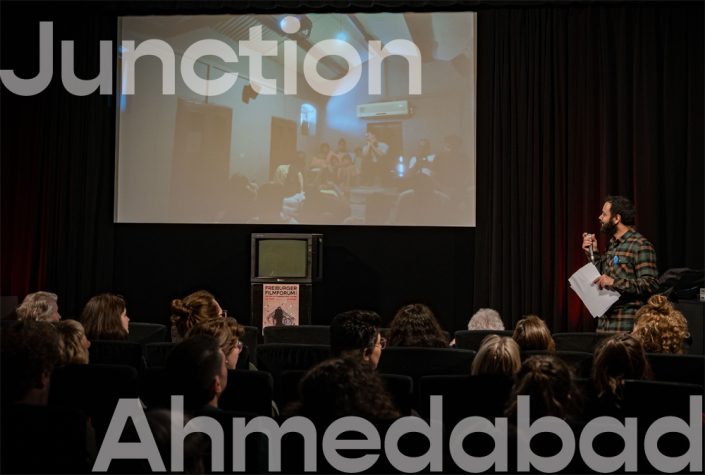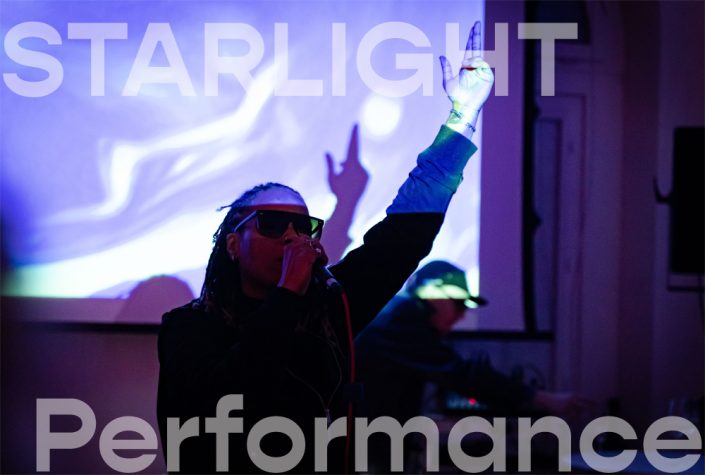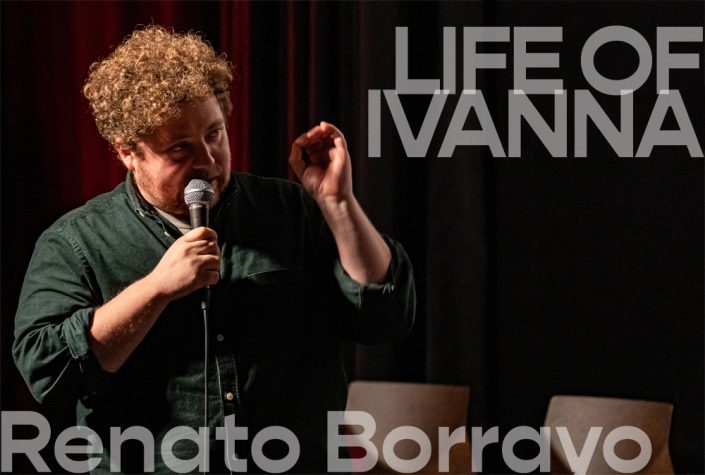Headlines about the consequences of the economic and social crises and the current lack of solidarity seem to have lost their selling. They grab little attention in the public discourse. The second part of Elena Friedrich’s Public Land series looks at the power dynamics of the public realm, which are located between information and manipulation, control and representation. The self-reflective documentary blends audio-recordings of discussions from Athens and Madrid with a fictional narrative of a man transporting boxes of oranges to the seaside, always with the question in mind of how, in the “society of the spectacle,” alternative narratives can be created and kept alive.
Violence is to charge 600 Euros - Public Land I
Wake up! is the recurrent tag on walls in Athens, Istanbul and Madrid. As a sign, it traces the political struggles between 2011 and 2015. The film is an essayistic collage that maps responses to the political events that led, among other things, to rent rising to 600 Euros in urban spaces. Protest tags in capital letters on major monuments are compared and contrasted in regard to form and content. The montage of images of the urban space filled with letters and signs sprayed on buildings blends with the narrator’s voice to create a reflection on and an appeal for public land. Which kind of public sphere, what kind of images, language, and narrations do we use and inhabit to change the world around us?
OYUN – THE PLAY
Nine women from a Turkish village in the Taurus Mountains tell about their lives. About fathers who would have preferred a son and who object to a higher education for their daughters; about mothers who have to juggle work in the fields, household duties and parenting and whose husbands commit adultery. The women tell about forced marriages and attempts to escape; about unwritten laws that so far no generation has had power to break. “I wish it was a lie, but it’s all true”, one of the women sums up the stories. In order to break the silence these women get together and write a piece of drama, “The Women’s Outcry”, based on their life experiences. They rehearse under the conduct of the local school director and work long nights under the curious gazes of the village men. In the course of the rehearsals the women develop a growing charisma and self-confidence. Nevertheless, there are disputes and the premiere in the village seems doomed to fail. In a perceptive and unobtrusive way, Istanbul-born director Pelin Esmer (*1972) accompanies the troup of amateur actresses on their path to the play’s premiere in the village.
Installation
The Turkish variety artist Zeki Müren was a national phenomenon. Born in 1931, he began his career as a respectable singer on the radio, before shifting direction and becoming a flamboyant nightclub idol. He would dress effeminately, with lots of makeup and jewelry, and while he was never explicit about it, his homosexuality was a public secret. A talented singer, he attracted a broad audience and became a symbol for Turkish unity. After his sudden death in 1996 – a heart attack during a TV appearance – he received a state funeral. Just how deeply Müren affected the lives of different people becomes clear with this interactive telephone hotline. Over 800 people have called in to leave a message for the deceased singer. (idfa)
Explore a selection of those calls in the phone booth in front of the cinema.
Fidelity
In Istanbul 2014, the young nurse Asli becomes a political opponent by chance when she spontaneously hides a protestor from a police crackdown during a political protest outside the hospital. She helps him to leave the hospital unseen without considering the consequences her solidarity might have on her calm and peaceful family life in one of Istanbul’s wealthier districts. When the police invade her private life, Asli faces the threat of a political system as well as the limits of her husband’s solidarity. SADAKAT is a fictional story about the still current question of personal and public responsibility and the limits of political resistance.
Once Upon a Time
While its title leads us to expect a tall tale, Once Upon a Time immediately foils that expectation. In observational cinema mode, we follow a large family of Turkish Kurds on a long trek to Ankara, where backbreaking toil in the lettuce fields awaits. With rare energy and spontaneity, the filmmaker shows us the horrible exploitation of Kurdish seasonal workers, as well as the good nature and strength of the film’s colourful protagonists. There is a radical shift in tone when the filmmaker seizes the opportunity presented by blossoming love between a Kurdish Romeo and Juliet, immersing us in a riveting story – part tender, part cruel. A fable that causes shivers and a successful marriage of sociological observation and serious narrative ambitions. (RIDM, Montréal)









